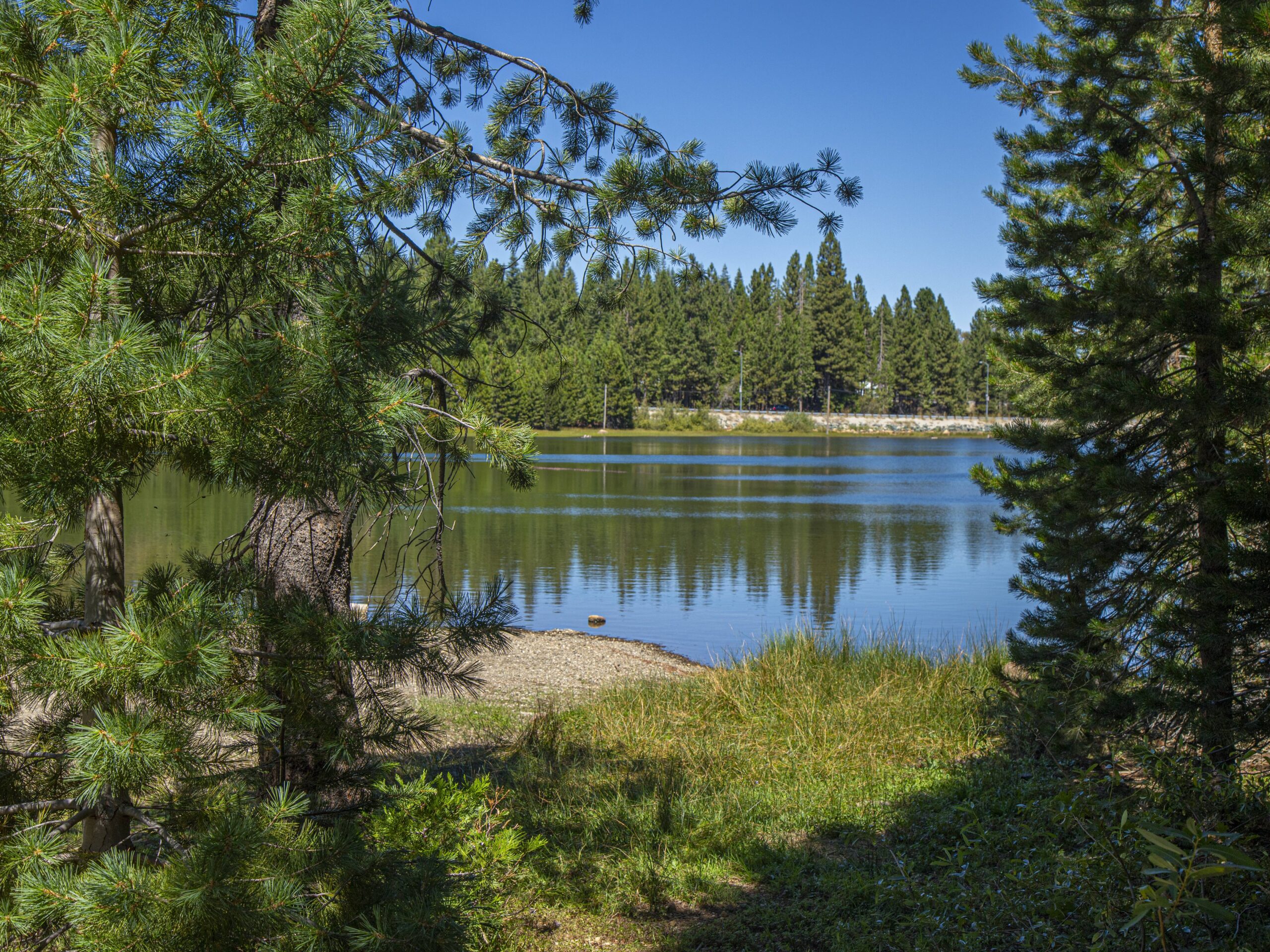
The 40 Acre Conservation League, California’s first and only Black-led land conservancy, has recently acquired hundreds of acres of land in Placer County, a significant step towards making outdoor experiences more inclusive.
The league acknowledges a long-standing history of discrimination and racism in the industry, public land and environment. With this new land acquisition, the organization is taking steps to further remove limitations and barriers to accessibility.
The Placer County land, located 70 miles northeast of Sacramento, features 650 acres of open space with lakes and trails the group plans to open to the public. The conservation league was able to fund this with a $2.27 million grant for the property near Truckee.
Cap Radio Insight host Vicki Gonzales spoke with Jade Stevens, the president of the league, who discussed their mission of creating inclusive spaces for diverse communities to enjoy nature. Stevens said the organization — named after the broken promise of “40 acres and a mule” to the emancipated people after the Civil War — aims to promote inclusive, culturally relevant conservation and outdoor engagement in California’s landscapes.
This interview has been edited for length and clarity.
Interview Highlights
Why was the 40-Acre Conservation League formed?
The reality is multiple studies, reports and personal observations have highlighted the many barriers that have really prevented communities of color from enjoying California’s amazing landscapes and waterways. As someone who’s an avid cyclist and loves the outdoors, [we] really wanted to push that thought further and find ways to create more accessible options for the parks and green spaces that we have throughout the state.
It’s one thing to love and enjoy the outdoors. It’s another thing to move into conservation.
How does the organization hope to bridge the gap between urban areas and nature?
I understand how important it is to have recreational activities and make sure that everyone feels welcome. We’re really focused on creating experiences that allow people to enjoy the great outdoors. But understanding the world that we’re in with multiple climate goals to protect the outdoors, really [we] saw this intersection between ways to get more communities of color outdoors but also do it in a way that is conserving this land for years to come.
What was your vision for land development and plans to make it accessible to the public?
There are miles of trails for hiking and potentially mountain biking. It’s beautiful. What we envision is an opportunity to really develop up certain parts of the property that will have recreational activities — anywhere from a nature center, [to] areas for people to hike and camp, [to] even in the lake having opportunities to fish.
What is the importance of prioritizing inclusivity outdoors for people of color?
For some reason, here in California, there have just been too many experiences where people don’t feel safe or welcome or able to find activities outdoors that feel culturally relevant.
We’ve hosted programs like Black Conservation Week and even our climate change exchange summit, where we’re having conversations with the community to just talk about some of the things that make communities feel unwelcome first.
That’s a huge barrier because I really believe that people of color, specifically Black people, love the outdoors.
What are some of the challenges faced in acquiring the land and making it a reality?
It required our team doing a lot of research to understand what is on the property — or what we thought was on the property — and what [we] could really do in terms of our goals of bringing more culturally relevant experiences. It also required us [seeking] education.
It worked at the perfect timing, when there was the 2022 state budget surplus and there was money set aside to do projects like we’re doing, which is acquiring land, but doing it in a culturally inclusive way.
CapRadio provides a trusted source of news because of you. As a nonprofit organization, donations from people like you sustain the journalism that allows us to discover stories that are important to our audience. If you believe in what we do and support our mission, please donate today.
